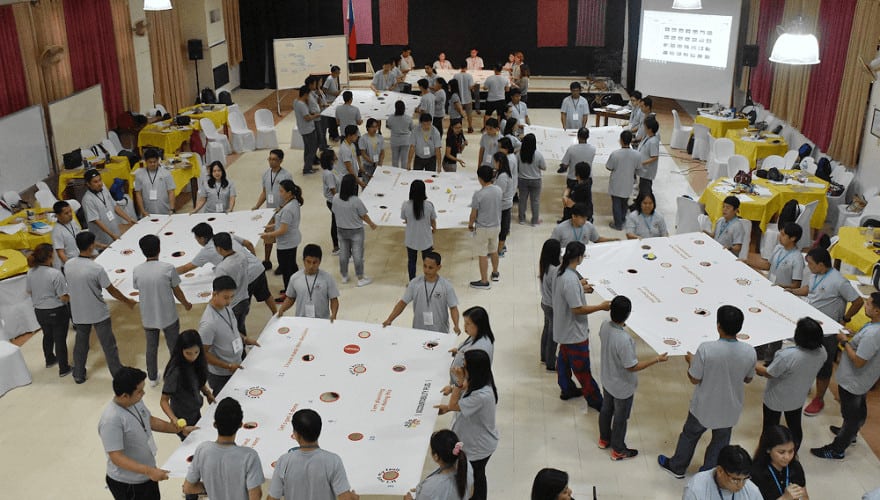The benefits of showing kindness every day are real—because a harsh workplace drains energy, breaks trust, and makes even good people shut down. In this article, Jef Menguin shows how small acts of kindness build you, strengthen teams, and shape a healthier culture. Practice one kind move today and share it at work so your team feels safer, lighter, and more willing to help.
Kindness. It’s often overlooked, underestimated, or seen as soft. But showing kindness every day? That’s where real impact begins.
It’s easy to brush kindness aside, especially in environments that push for competition and performance. But the truth is, kindness builds everything—from the person who gives it, to the team who feels it, to the community that thrives on it.
Kindness
Kindness isn’t some grand, sweeping gesture. It’s not about saving the world in a single act. Kindness is small, simple, and powerful. It’s the choice to put someone else’s well-being first, even if it costs you nothing but a moment.
Kindness is holding the door open for someone juggling two bags of groceries. It’s sending an encouraging message to a colleague who’s had a rough week. It’s giving a smile to a stranger when you don’t feel like smiling. The impact is subtle, but it sticks.
1. Kindness Builds the Person
When you show kindness, you’re not just doing something nice—you’re shaping who you are. Kindness requires empathy, patience, and understanding. Every time you make a small, kind gesture, you reinforce those qualities in yourself.
Think about it: when you hold the door open for someone, compliment a colleague’s work, or just take a moment to listen—you’re building emotional muscles that grow stronger every time. And that growth? It radiates into everything you do. You become someone people want to be around, someone they trust. The side benefit? You feel better about yourself. Kindness lifts both the giver and the receiver.
2. Kindness Strengthens Teams
Imagine a workplace or a school where everyone’s kind to one another. Not the superficial “How are you?” while passing by in the hallways. But genuine kindness—offering help when someone’s swamped, encouraging a teammate after a tough meeting, or recognizing effort even when results fall short.
When kindness becomes the norm, trust grows. And when trust grows, so does collaboration. People aren’t just coworkers anymore—they become a team. They look out for each other, and that creates an environment where creativity flourishes. Teams that lead with kindness perform better because they’re not just focused on hitting goals—they care about each other, and that care amplifies their ability to deliver.
3. Kindness Builds Communities
Now let’s zoom out. Kindness isn’t just an individual or team trait—it’s the foundation of a strong community. When people are kind to one another, the whole culture shifts. It creates a ripple effect that spreads beyond the immediate interaction.
In a school, when students show kindness, they build a culture of inclusion. They stand up for each other, they look out for new students, and they create a space where everyone feels they belong. In the workplace, a culture of kindness translates into higher employee morale, lower turnover, and more engaged teams. People don’t just come to work—they come to a place where they’re valued.
The Quiet Kindness: A Small Act that Says Everything
You’re at work. It’s one of those long days. You’ve been working through lunch, focused on your screen for hours. You’ve got your own deadlines, but you notice Sarah—she’s sitting two desks away, quietly stressing out. She’s got that look, the one that says, “I’m drowning, but I don’t want to bother anyone.”
So, what do you do? You’ve got your own pile of work, right? It’d be easy to ignore it, let her figure it out on her own. But instead, you stand up, walk over, and ask, “Hey, need a hand with anything?” She looks up, surprised. You pull up a chair, offer to take something off her plate, and suddenly the weight on her shoulders feels a little lighter.
You didn’t fix everything for her. You didn’t solve her problems. But that one small act—showing her that someone’s got her back? That’s kindness.
Kindness is about presence. It’s about noticing the people around you. The person struggling in silence, the one who needs a lift, the one who just needs to know they’re not alone.
It’s a ripple effect. That little act of kindness you showed Sarah? Maybe now she goes home with a little less stress. Maybe tomorrow, she does the same for someone else.
Kindness is simple, but it’s never small. It’s a choice. One that builds connection, trust, and community. One that makes people feel seen, supported, and valued. And the best part? Anyone can do it.
The Ripple Effect of Kindness
Kindness spreads. When one person shows kindness, it’s contagious. A simple act can set off a chain reaction. Hold the elevator for someone, and they’re more likely to pass that kindness along. Offer support to a colleague, and they’ll be more likely to lift someone else when they’re down.
Kindness isn’t a weakness. It’s a strength. It creates environments where people feel safe, where they thrive, and where they grow.
So, if you’re serious about building a better team, a stronger community, or even becoming a better person, start small. Be kind, every day. It’s not about grand gestures—it’s the small, consistent acts that make all the difference. And when kindness becomes part of who you are, it becomes part of the culture around you.
And that? That’s how you build something that lasts.
If you want Filipino values to show up as real behavior at work…
Let’s turn it into a culture shift experience.
→ Shift Experiences




